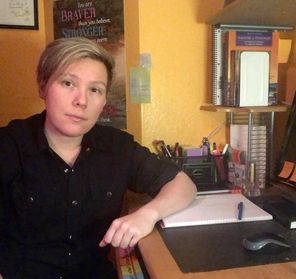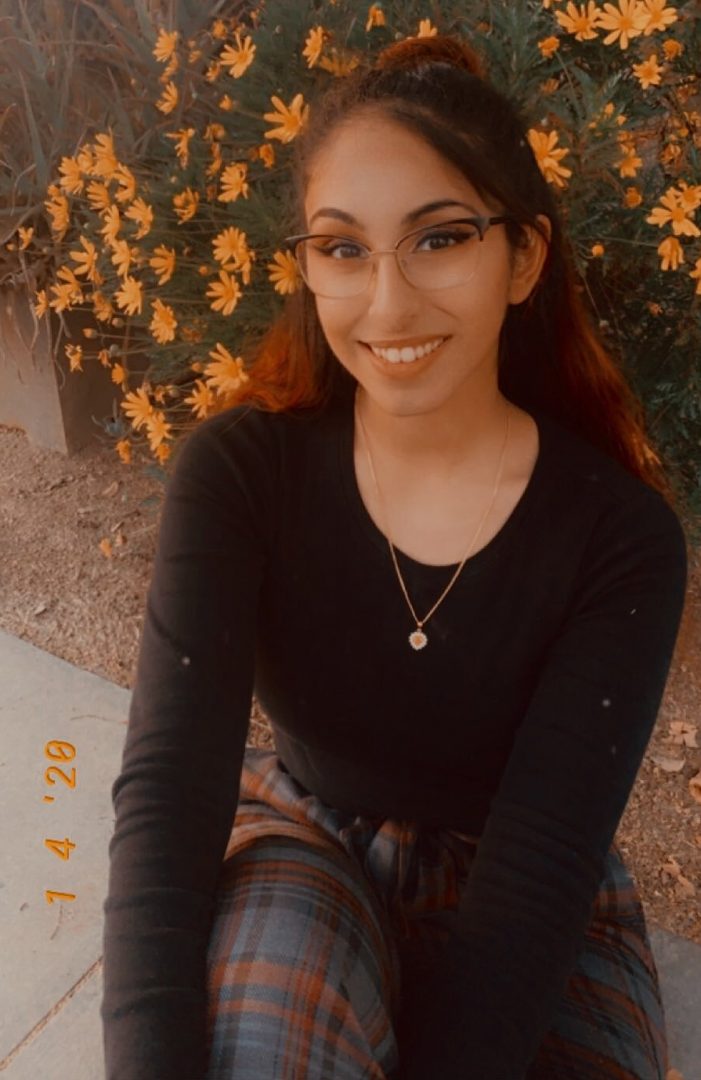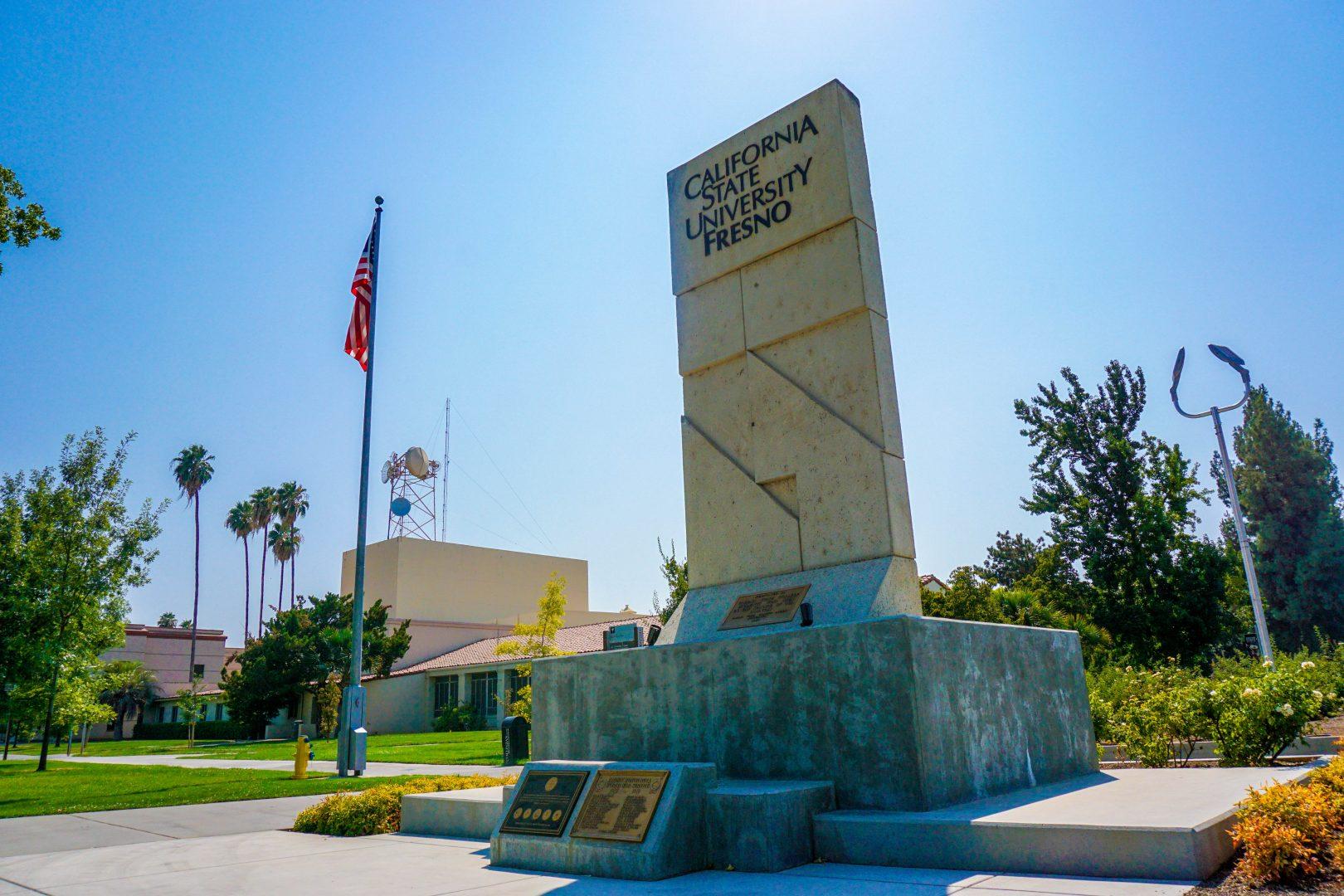Eight weeks into a virtual semester, Fresno State students are juggling many different responsibilities amidst a global pandemic that has taken the lives of over 200,000 Americans.
Linguistics student Icarus Bailey was taking care of his grandparents before the pandemic, driving from Fresno to Sanger where they lived. Before a stay-at-home order in March, his grandfather lost his sight and was now legally deaf and blind. To avoid the constant trips, Bailey moved in with his grandparents and is now taking care of them full-time while taking 22 units combined at Fresno City College (FCC) and Fresno State.
Since Bailey’s grandfather has lost his sight and hearing, he relies on his grandson’s assistance and often calls Bailey for help.
“We haven’t learned a lot of boundaries because he’ll need help with something, and he’ll just walk into my room and be like, ‘I need you to do this for me,’ ” Bailey said.

Many students, like Bailey, said they’re having trouble navigating a semester in a year with COVID-19, racial inequity and a staggering number of wildfires. And when California State University Chancellor Timothy White announced mostly virtual instruction would continue for the system’s 23 campuses, students said it was expected, but they were still taken aback.
In March, Bailey was still at FCC when many universities moved from in-person instruction to entirely online learning. But he and his friends didn’t expect this to continue past May or June when he would transfer to Fresno State.
“At that point, we were all kind of thinking we’ll just get through this semester, and we won’t have to deal with this again,” he said.
Coronavirus continued to spread across the U.S., and California experienced a large spike in cases in June and early July after restrictions were relaxed on several activities like indoor dining, bars and gyms.
The state had to then impose restrictions once again on activities associated with the spread of the coronavirus. California then instituted a watch list system of tracking the virus in counties and now has recently moved to a four-tier, color coded classification to determine what restrictions will be imposed on certain counties.
Fresno County recently moved down from widespread (purple) to the substantial (red) tier, allowing certain businesses like movie theaters, gyms, restaurants and malls to reopen at a limited capacity. The guidance on higher education, according to the state, still says to “conduct student activities virtually when possible.”
Fresno State is still in the midst of creating its plan for the spring semester, University President Dr. Joseph I. Castro said. The university has assembled its spring 2021 planning task force, which will consult with the Fresno County Department of Public Health to determine how many students will be allowed back on campus.
“[The task force] will come up with a recommended plan by about the middle part of October and then it will need to have some review from the chancellor,” Castro said.
Castro said the following semester still will look “very similar” to the fall.
“We continue to learn every day how to better serve our students virtually, and so we’ll continue to adjust our programs and support,” Castro said. “The fall will inform the spring, and we will make appropriate adjustments as necessary depending on the conditions we’re dealing with.”
Liberal studies student Iman Alamri applied to Fresno State in fall 2019, and she was overjoyed when she received her acceptance letter in February. Her mother attended the university, and she heard good things about the liberal studies program. However, she never expected to spend her first year inside her home.
“Come on, my first year at Fresno State is going to be online,” Alamri said. “Am I just going to spend my senior year on campus like that’s the only year I’ll have?”
Alamri said the virtual semester has been overwhelming and has made her lose motivation. She ended up dropping a class in one of her favorite subjects, child development, for her mental health. She described the experience as a never-ending routine where she wakes up, turns on the computer, joins class and then closes the computer.
“I feel like I’m disconnected from everything,” Alamri said.

This disconnection wasn’t only with the lack of face-to-face instruction but also the lack of in-person interaction. Alamri, of Selma, can’t see her brother and two sisters as often because they all live in different cities. FaceTime and Zoom calls weren’t the same, she said. To make up for this, Alamri said she convinced her parents to get her a Lynx Siamese mix cat.
Other students have particularly struggled with asynchronous classes where professors will post assignments and not require students to meet at a specified time on Zoom. Music education student Ryann White said he feels he’s expected to teach himself by watching pre-recorded lectures.
“I am more easily able to access help with class content through Zoom than through email or even office hours,” he said. “I feel like I can’t make myself pay attention to hour-long lectures by myself.”
Criminology student Aledria Cymone Oatis said one of the biggest challenges with online learning, in general, is the amount of reading. “Most of my teachers just make you read, read, read,” she said.
As for Bailey, he’s taking three asynchronous classes, two at FCC and one at Fresno State, but he said he’s managing it and getting good grades. While managing his schoolwork, he’s aiding his grandparents any way he can, going out shopping, carrying out daily errands and helping with technology issues. He also noted that he does have some anxiety taking care of his grandparents as the risk for severe illness from COVID-19 increases with age, according to the CDC.
“It’s a factor in the anxiety because I feel like everybody’s kind of got anxiety about getting sick or getting people they love sick,” Bailey said.
But Bailey said he’s doing his best to manage it by helping his grandparents when he can and setting boundaries when he needs to. Like many other students, he said he’s adapting to his situation as much as he can and thinks he’ll be better prepared in the spring.
“It’s been a learning process,” he said.




